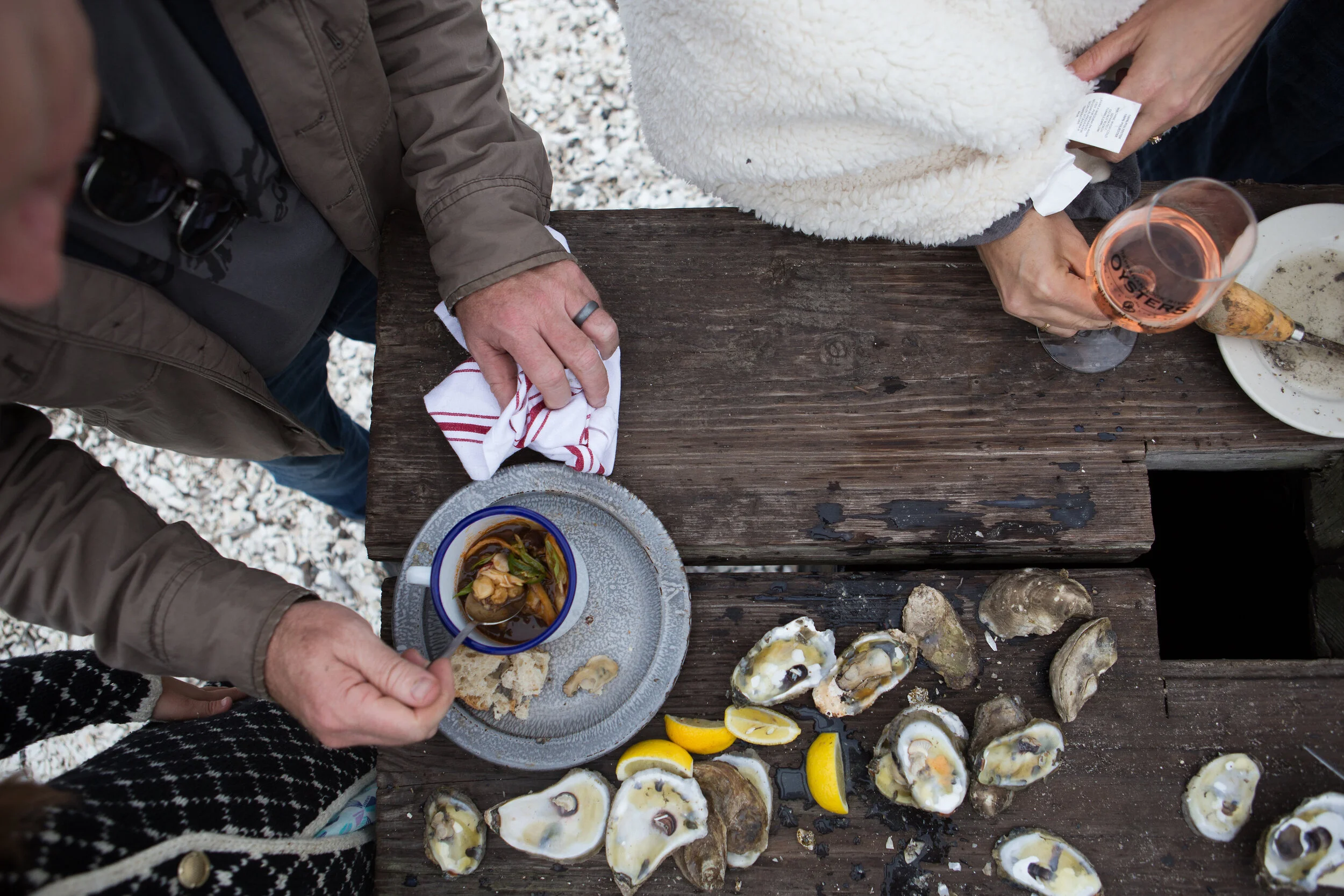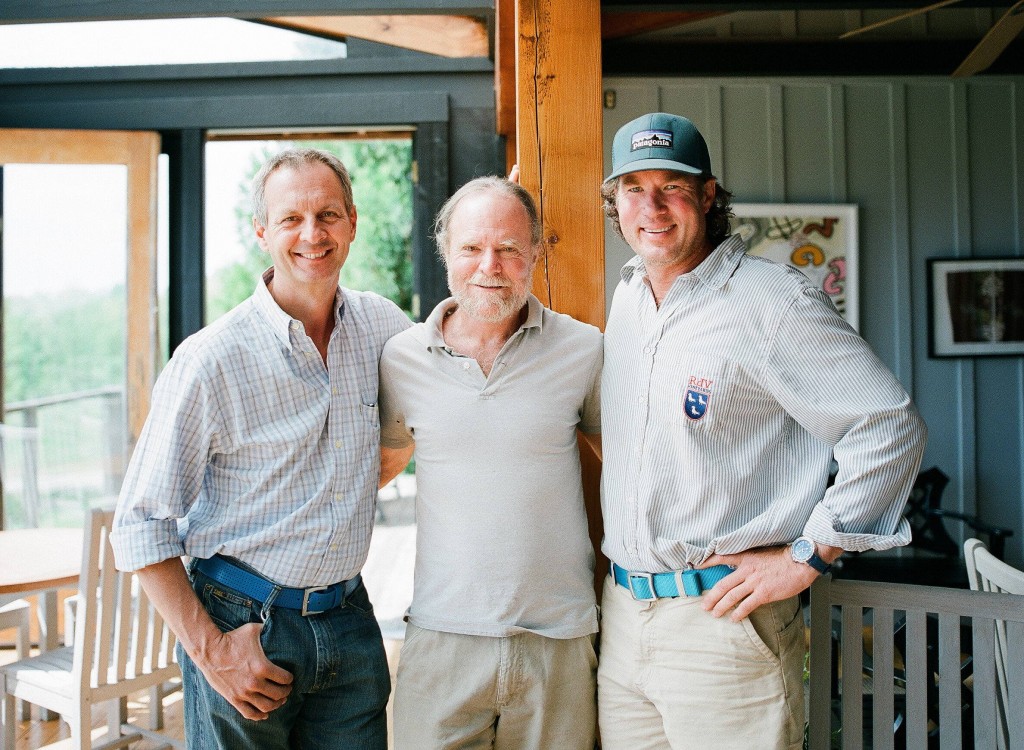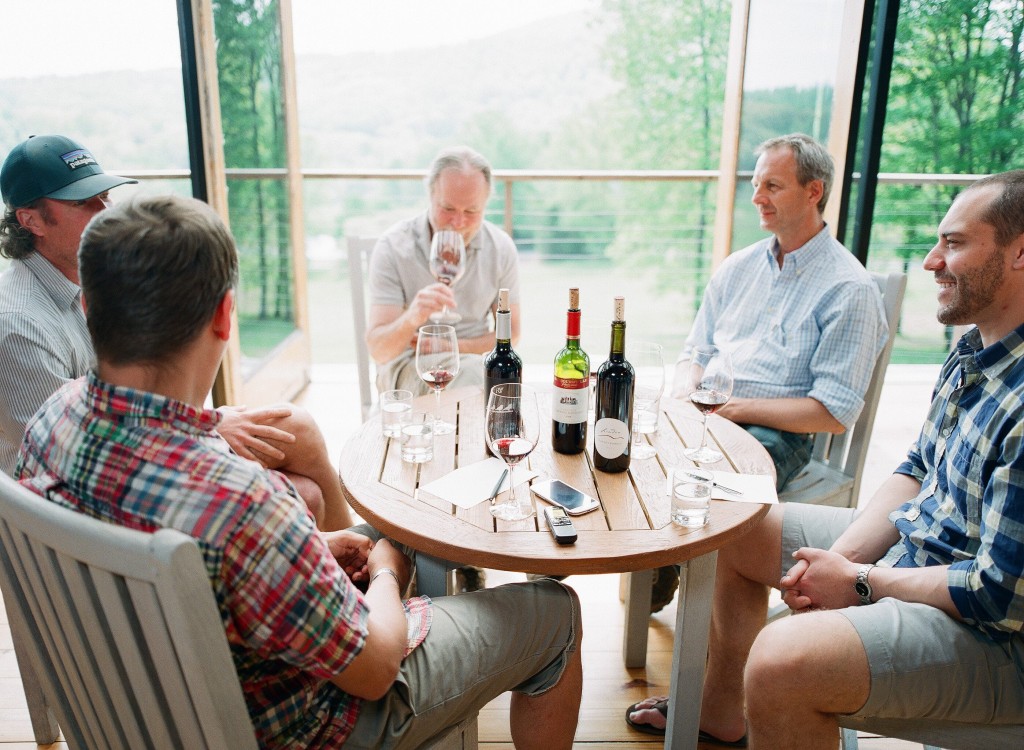A conversation with the Old Dominion's three top winemakers
/Virginia’s Finest
By David White
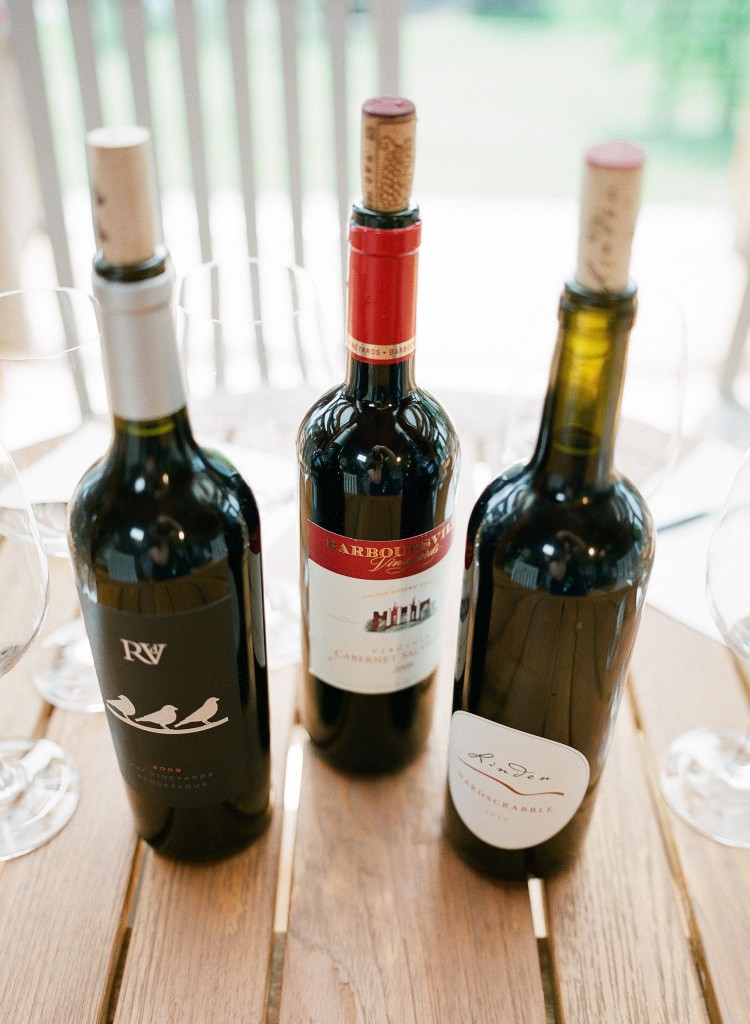 Until 1976, few wine critics took California seriously.
Until 1976, few wine critics took California seriously.
That year, a British wine merchant organized a competition in Paris pitting California’s best Chardonnay and Cabernet Sauvignon against the best wines that France had to offer. Everyone assumed that France would win. But with both the whites and the reds, California came out on top.
That competition—now known as “The Judgment of Paris”—transformed California’s wine industry. It helped accelerate vintners’ efforts to tout California’s wines as being on par with Europe’s best offerings.
Virginia’s wine industry isn’t yet on par with California’s. But wine critics everywhere are starting to pay serious attention to the state. After a recent visit to the Old Dominion, celebrated British wine authority Jancis Robinson suggested that Rutger de Vink—the proprietor of RdV Vineyards in Delaplane—has “a good chance of putting the state on the world wine map.”
De Vink’s name is almost always mentioned alongside Jim Law of Linden Vineyards and Luca Paschina of Barboursville Vineyards, two key figures in the industry. Wines from these producers would convert just about anyone who doubts Virginia’s potential.
In mid-May, I visited Linden to chat with De Vink, Law and Paschina. Sebastian Zutant, the co-owner and wine director of The Red Hen, a popular D.C. restaurant, accompanied me. Our conversation has been edited for length and clarity.
David White: How and why did each of you decide to make wine in Virginia?
Rutger de Vink: You’re starting with the newbie? But these are the two godfathers! For me, it started in 2000. I was working in the tech field, wearing a tie to work every day, and realized that life wasn’t for me. I wanted to work with my hands and be out in nature.
My parents grew up in Europe, where wine was always on the table. So I contacted Lucie Morton, a vineyard consultant in Virginia, and told her I’d like to get into the wine world. She said, “Before you do anything, you need to apprentice. There are two names I’ll give you: Luca Paschina and Jim Law.”
I was living in Alexandria so I contacted Jim. But he didn’t offer apprenticeships. So I contacted him again, stopped by, and finally broke him down. My first harvest here was in 2001. I remember coming in August and doing canopy management; I think it was my hazing period! It was buggy, hot and sweaty, but within the first week, I decided that this was what I want to do with my life. Working with your hands and working with the soils was just magic, right away.
I then started to look for a nice site, as I had been learning about the importance of site selection. I looked in Virginia for a while, starting in 2001. But nothing really presented itself. So I went out to California and looked on the Sonoma Coast and north of Santa Barbara. I wanted to be in a region where good wine was being made, but where there was potential to take it to the next level. And then I stumbled upon our little magic granite hillside.
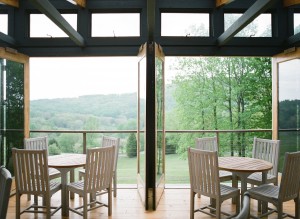 Jim, how’d you end up here?
Jim, how’d you end up here?
Jim Law: I also grew up with wine on the table. And in the ’70s, I was an agricultural volunteer in the Peace Corps in Africa and fell in love with fruit crops. So when I came back, because I had a love for wine and growing fruit, I put it together.
I started in Indiana, just over the border from Ohio. I ended up pruning in the winter, by myself, and loved it! But I knew I couldn’t make the kind of wine I wanted to there. Not that it’s impossible, but I couldn’t sell it. People then just wanted inexpensive, sweet wines. So I decided to go to one of the coasts, mainly because I knew there’d be a market.
Long story short, I received a job offer in Virginia from an old Italian guy that had a vineyard and wanted to start a winery in the Shenandoah Valley. I fell in love with it and knew this was where I wanted to be. So in 1983, I bought this place. I planted it in 1985. The rest is history.
Luca?
Luca Paschina: I was one of those people who grew up in a family of winemakers—my father, uncle, grandfather and brother. Besides my grandfather, we all even graduated from the same school. Growing up in a family of winemakers doesn’t mean you’re going to be a winemaker, but I’m sure you’re more likely to at least try it.[/pullquote]
I ended up loving it! I graduated from school in 1982 and for the next eight years, I worked in quality control, vineyard management and sales. I got a chance to work in northwest Italy in Piedmont, in Spain around Barcelona, in the Finger Lakes and in Napa.
I eventually went back to Italy, and the company saw me as a great communicator so put me into sales. I liked it for three years because the travel was great. But it wasn’t what I really wanted; I wanted to grow grapes and make wine. The company I was working for didn’t have a position for me, so I quit.
I contacted about 75 companies that were invested in vineyards. The first one to reply was Zonin, one of Italy’s largest wine companies. They had purchased Barboursville in 1976 and offered me a two-month consulting job. I had no idea where Virginia was on the map, but I came and loved it. There was just so much to do, so much unknown. So I stayed.
What challenges does Virginia face?
JL: Every region has its own challenges. But when I came here 30 years ago, the biggest challenge was that nobody had a clue how to even grow grapes and make wine under the best conditions, let alone anything about terroir or what made sense where. It was a total crapshoot.
It was a lot of fun, but we really had no idea what we were doing. But it was sort of the same way in Napa at the time. I remember, right on Highway 29, people would say, “this is Moscato, this is Gewürztraminer, this is Zinfandel, this is Gamay, this is Cabernet.” They’d all be right there.
The defining thing in Virginia is rain. That’s the huge difference between California and us. At first, I would go to California a lot to try and learn. But then I realized we had rain and they didn’t—so I needed to go to Europe. That’s what we’ve all been doing, as we understand that rain influences everything. Especially site selection and how the soils absorb and retain water. Once you start understanding that, once you start finding the vine balance, you can do some wonderful things.
Is there enough experimentation in Virginia?
JL: We know some of the grapes that do well, and we’re lucky that those grapes are internationally accepted and make really good wine.
LP: What’s very important is that people like Jim—people who have been growing grapes for a few years—observe, listen and change. We learn which grapes go where. In Virginia, we’re working with grapes that make some of the best wines in the world, but you have to know which sites support which grapes. That’s something you can only figure out while you do it. RdV: I just love the American spirit: “You don’t think I can produce a great wine in Virginia? Let’s go try it out!”
Has the wine industry been able to tap into the local food movement?
LP: I’m a little concerned about using words like “local.” Some restaurants just use these words for marketing purposes, regardless of how they operate. There’s no easier access to a local product than wine, but it’s one of the last products to be brought into so many restaurants. It’s happening, but boy, it took forever.
JL: But the differences I’ve seen are phenomenal, especially in the last five years. It’s been amazing.
There are more wineries in Virginia than ever before. But I would argue that the number of quality producers hasn’t increased proportionally.
RdV: Absolutely. The three of us have a mutual friend, Mark Chien, who was one of the pioneers out in Oregon. He has told us that the Virginia industry reminds him of Oregon in its beginning—but in Oregon, it was relatively difficult to sell your wine. Here in Virginia, it’s almost too easy to sell because it’s still very much a tourism market. People come to spend time in the beautiful countryside and enjoy wines—it’s not really focused on quality.
Having said that, things have really improved. Back in 2001, we’d have tastings and find flawed wines—incorrect, unserviceable lots. Today, even at the most commercial winery, it’s hard to find bad wine. We have reached a point in our cellar practices where Virginia wines are globally serviceable.
Oregon’s pioneers—people like David Lett and Dick Erath—were known for promoting their entire region. If you followed that blueprint, you’d inevitably promote wineries that survive on weddings and bachelorette parties. Is this problematic?
JL: Usually, the wines available out in the marketplace are the best. So we have that going for us. People ask for specific recommendations, which we give. What we see in Virginia isn’t so unusual anywhere in the world nowadays—it’s just that maybe the differences are a little greater from top to bottom here.
LP: In the past couple years, I’ve been feeling a bit more relaxed about this situation. I used to be a bit more uptight and say when wineries were going in the wrong direction. But you know what? It doesn’t really matter. I don’t think we’re penalized by those that want to do weddings. If that’s what they want to do, that’s OK. It’s like the restaurant business. Do you think all the restaurants in Washington are good? Absolutely not! But there is a group that wants to do well. That’s what’s happening with Virginia wine.
If I were in your shoes, I’d be torn. On the one hand, I’d want to promote Virginia. On the other, there are a lot of wineries I wouldn’t want to promote.
JL: It’s not as difficult for me as it used to be because I’ve made peace with the fact that not everyone is going to produce a style of wine I like at a quality level I’d like to see. That’s true in all regions, even in Bordeaux!
RdV: For me, it’s not an issue. I don’t compare myself to Barboursville or Linden, but I think the three of us are more international. I consider myself part of the global community, with people from Napa and Bordeaux.
What’s extremely insulting for me is hearing “Not bad for a Virginia wine.” I used to be quiet about it, but now, I reply back and say, “This is not bad for a global wine.” We’re making world-class wines that compete with the top wines around the world. If you don’t think so, let’s put them in brown bags. I do these brown-bag tastings all the time, not to insult other wineries, but because you have to have a benchmark. And unless someone like Robert Parker at Wine Spectator says—“95 points!”—everyone will be suspicious of Virginia. That’s hard. But it’s getting better.
I used to be introduced as “a top winegrower in Virginia,” but just recently at a fancy club in Washington, I was introduced as “one of the best winegrowers in the country.” I’ll remember that introduction!
How to you get a customer at a restaurant in Chicago or New York to request a bottle of wine from Virginia?
LP: I’m not in hurry. We’ll get there. Every year, the knowledge of Virginia wine increases. With restaurants, we have to identify spots with intelligent wine buyers—ones that aren’t prejudiced or lazy. It’s easy to buy famous wines, put them on the list and jack up the prices. Those are the restaurants I don’t want to be in. Even if I’m on those lists, my wines will just sit there in a big book.
Barboursville is at a fantastic restaurant in Brooklyn—and I’ve had people come visit the winery after tasting the wine there. Some of our best buyers, historically, have come after hearing about us from restaurants in New York, Washington, Richmond and Charlotte. Somebody at the restaurant suggested they try they wine, and then they say, “Oh, my gosh, this is good.”
- David White is the founder and editor of Terroirist.com, which was named “Best Overall Wine Blog” at the 2013 Wine Blog Awards. He is also the author of a nationally syndicated wine column that’s hosted by Grape Collective. Follow him on Twitter @terroiristblog.
The Vineyards
Barboursville Vineyards, 17655 Winery Road Barboursville, VA 22923. The winery's Tasting Room is open every day of the year except Thanksgiving, Christmas Day, and New Year's Day, from 10:00 to 5:00 on Monday through Saturday, and 11:00 to 5:00 on Sunday. www.barboursvillewine.net
Linden Vineyards, 3708 Harrels Corner Road, Linden, VA 22642. Visiting and tasting hours are Friday, Saturday, Sunday, and Monday 11 a.m.–5 p.m. ClosedThanksgiving Day, Christmas and New Year’s (Dec. 24 through January 2).www.lindenvineyards.com
RDV Vineyards, 2550 Delaplane Grade Road, Delaplane, Virginia 20144. Visiting and tasting tours are by appointment via the website. www.rdvvineyards.com

